When Rishi Sunak addressed his cabinet this week, he tried to strike an optimistic note. Despite Labour’s commanding poll lead, the misery of strikes and the deepening NHS crisis, the Prime Minister said progress was possible, but on one condition: ‘There are challenges we face,’ he said. ‘But when we are united there is nothing we can’t do.’
His implication, of course, was that a warring Tory party will achieve nothing. Despite bringing some calm to Westminster after a turbulent year, Sunak is already the subject of hostile briefings from his own MPs. His five priorities – halve inflation, reduce debt, grow the economy, cut NHS waiting lists and stop illegal Channel crossings – led to much public enthusiasm from Tory MPs. But privately, some were scathing: ‘That pointless speech made us look pointless,’ vented one minister.
Boris Johnson’s most ardent supporters spy an opportunity for their man to make a comeback if the local elections are disappointing in May. So far, it’s only Boris’s true believers, such as Nadine Dorries, making the case publicly. ‘The demand isn’t there. But you never know what desperation will do,’ says one former minister. Others point to Richard Tice’s Reform party, which is positioning itself to the right of the Conservatives, as evidence that the party needs to be more hardline.
David Cameron famously laughed off Ukip as the party of fruitcakes, loons and closet racists, thinking no right-wing challenger could ever cause him a problem. Since Nigel Farage disproved that theory, the Tories have been less complacent – and the right of the party, in particular, is becoming restive. No. 10 is nervous.
Sunak must unite the right of his party. ‘MPs need a cause to coalesce around,’ admits a government figure. As one former minister, well versed in the dark arts, puts it: ‘Can this new No. 10 show the skill to start causing a few rows?’ They’re about to find out.
The government will soon introduce legislation to enact the most ambitious of Sunak’s five pledges: to ‘stop the boats’. These new laws will be less about border control and more about making sure that those who are intercepted can be swiftly removed or flown to Rwanda without a court getting in the way. The idea is to ensure that anyone who comes to the UK via small boats does not stay in Britain. This means tightening modern slavery laws, as well as reforming the asylum appeal system to stop spurious claims.
Sunak wants to lead this crackdown rather than leave it all to his Home Secretary, Suella Braverman. The PM personally addressed Home Office staff about this before Christmas. Sunak thinks the agenda can win back despondent Tory voters – polling shows the small boats debacle is a major drain on electoral support – and also unite his party around a common aim.
Red Wall MPs are particularly jittery, fearing punishment from their constituents at the next election if the party fails to solve the problem. ‘Whether you are Red Wall or Blue Wall, the vast majority think small boats is one of the biggest issues and illegal immigration is unfair,’ says a government aide. There is also a hope that such a crackdown could cause discord on the opposition benches. ‘We need to dent the confidence in Labour that they will win the next election,’ says a minister. ‘Then they will turn on each other.’
Polls show decent public support for the Rwanda scheme but Keir Starmer and his shadow cabinet have attacked it. ‘It could be a key dividing line,’ says a senior government figure. Labour strategists have urged their politicians to avoid moral arguments – and instead to attack the policy on the grounds of feasibility. ‘But not everyone has played ball,’ says a member of the shadow cabinet. Labour is expected to oppose the new rules in a vote, which Sunak intends to exploit. ‘I’m confident we can deliver it if we can pass the legislation,’ he recently told the BBC. ‘And that will be a question for parliament.’
The government could certainly do with some dividing lines, given that there is little visible difference between the parties on the economy. ‘The three factors that took us to victory are gone: Corbyn, Boris and getting Brexit done,’ says a senior Tory. ‘We need a new message. We should go on small boats every day.’
But there are still hurdles. Even MPs who back Sunak’s priorities in principle worry he has set himself too hard a target with his pledge to actually ‘stop’ the small boats. ‘Five pledges are fine if they are pledges you can keep. How are we going to stop the boats?’ says a former cabinet minister. ‘Even if we halved [the number], Richard Tice or Nigel Farage could stand on a beach and point.’
Some think the Tories should go further still. The Red Wall Tory MP Jonathan Gullis recently tried to force the government to ignore rulings from the European Court of Human Rights. He failed, but he is not alone in his diagnosis of the problem. Many Tories say the next election should be fought on a pledge to pull out of Strasbourg’s jurisdiction, which would be anathema to Starmer. These MPs believe it would allow them to bring back the old Brexit playbook.
‘We could say “get the boats done” and run a “stop the boats” election,’ argues one government adviser. They point to the ‘stop the boats’ campaign in Australia, which is viewed by several senior Tories as a way to keep elements of the Johnson electorate on side.
Should that fail, other battles may offer the potential for Tory unity, such as a crackdown on eco-protests. Supporters of this strategy again see a weakness for Labour: it emerged this week that Starmer accepted £380,000 for himself and his party from a donor, Dale Vince, who has also funded Just Stop Oil and Extinction Rebellion. If the government decides to block the Scottish National party’s trans reforms next week, the UK may soon find itself in a battle on both independence and identity politics.
Tory MPs are beginning to conclude that on the big questions – fixing the NHS, welfare and the economy – they may have run out of time. Sunak could have a hopeless task. But he can still put up a fight – and much may depend on his picking the right ones.
Got something to add? Join the discussion and comment below.
Get 10 issues for just $10
Subscribe to The Spectator Australia today for the next 10 magazine issues, plus full online access, for just $10.
You might disagree with half of it, but you’ll enjoy reading all of it. Try your first month for free, then just $2 a week for the remainder of your first year.


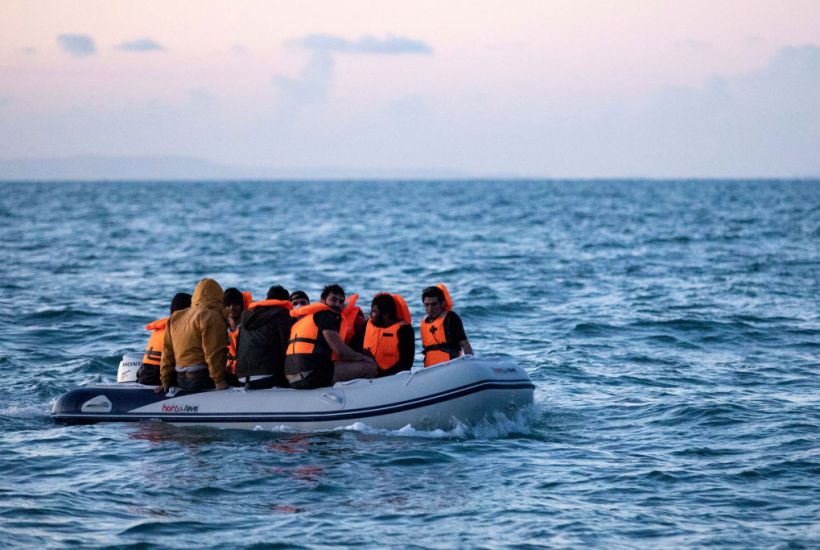
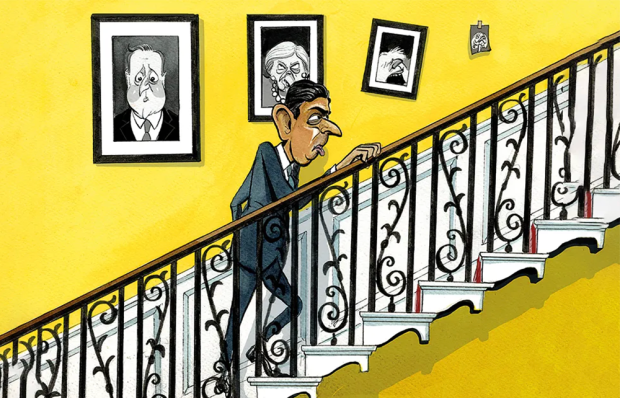
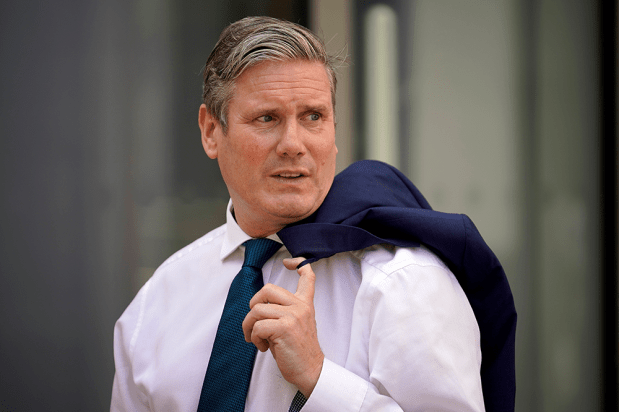
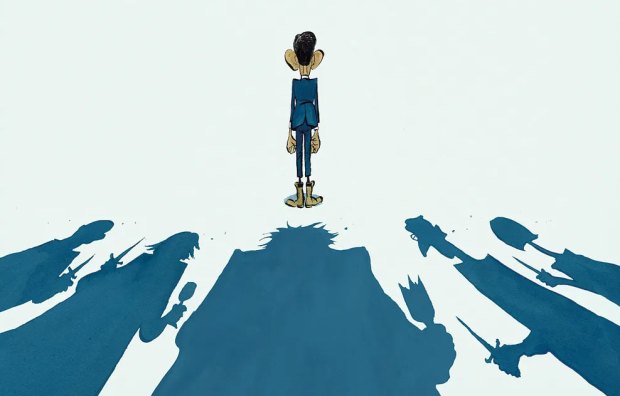
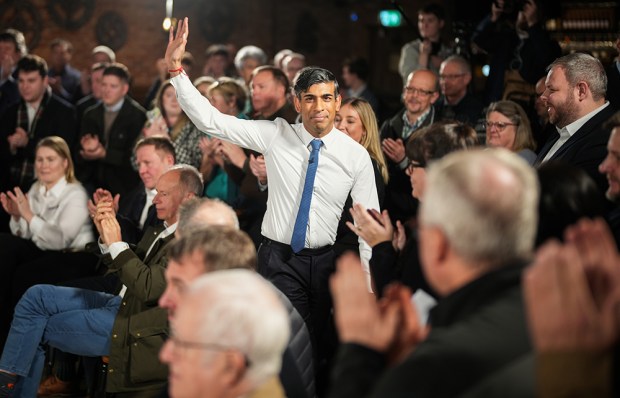
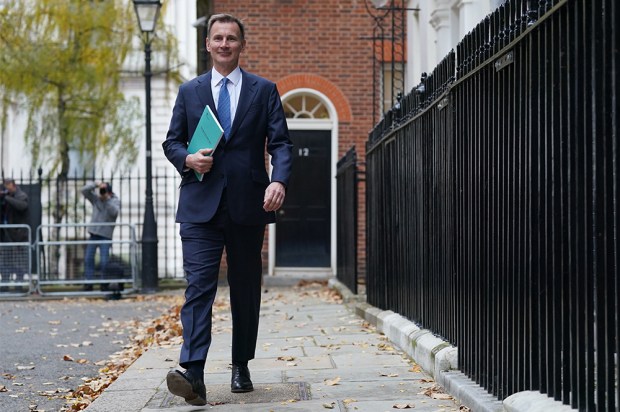
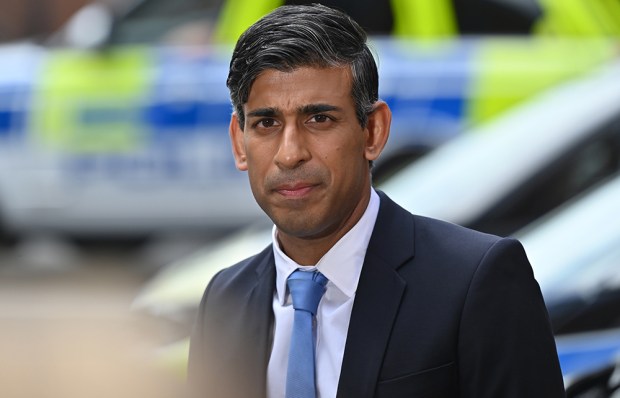






Comments
Don't miss out
Join the conversation with other Spectator Australia readers. Subscribe to leave a comment.
SUBSCRIBEAlready a subscriber? Log in